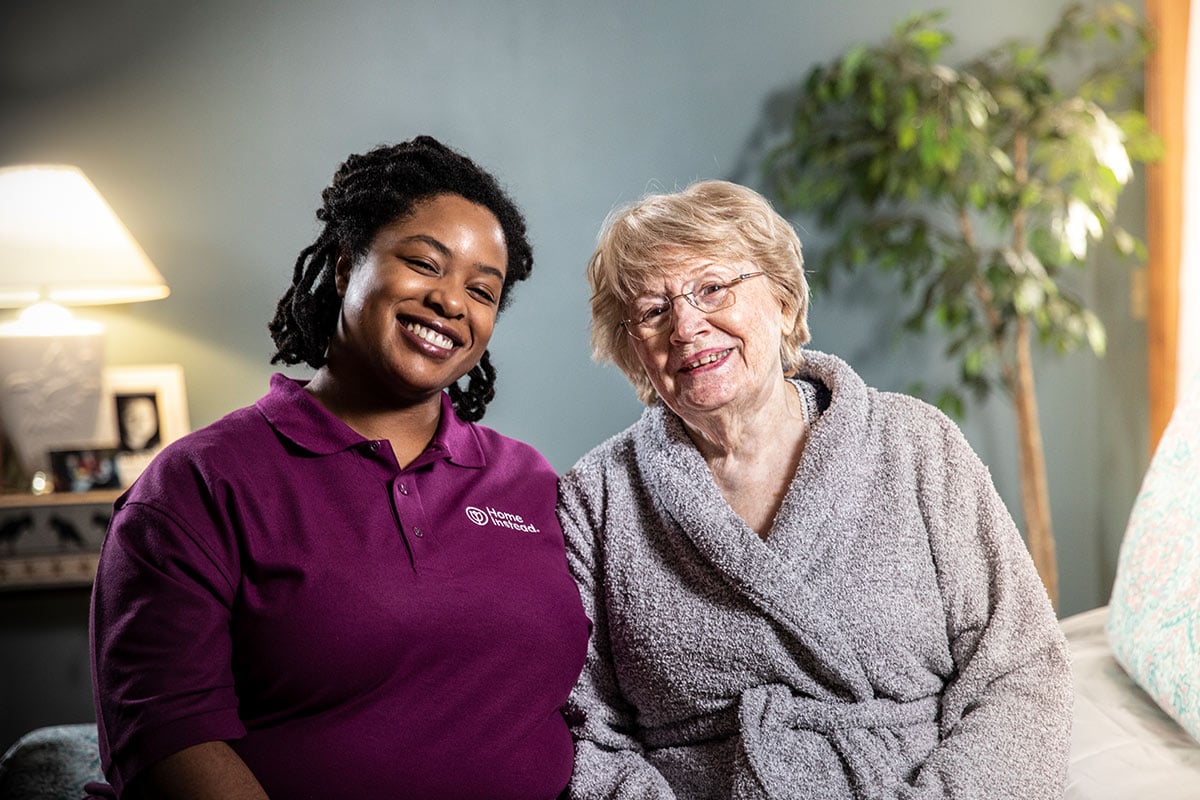Your Senior Loved One Just Had A Stroke.
It’s been a number of days since the stroke occurred. There have been several tests as well as imaging to help pinpoint how and why this could have occurred. Emotions have been on a rollercoaster throughout this whole process and now, it’s finally time to think about how to care for a loved one after a stroke. While every stroke patient’s journey is different, it is important to fully understand their limitations.
While strokes can happen to anyone, the senior population is at a higher risk. A stroke is life changing. Strokes can leave people feeling numb and weak. More significant effects can include an impact to gross motor skills, paralysis, memory loss, and more. As a family member or close friend, the effects of this medical occurrence can leave you worrying about your loved one and their wellbeing. You may also be stepping into a caretaker role overnight on top of the home responsibilities you already have while the long-term help is determined. Some of the activities you may be helping aging adults relearn include the activities of daily living like feeding, toileting, dressing themselves, standing, sitting, lying down or simply moving.
What comes next after my senior loved one has a stroke?
Know the Signs of a Stroke. One of the most important parts of providing care to a senior who has had a stroke is recognizing the onset of additional signs of a stroke. The acronym F.A.S.T can help with spotting signs and symptoms of a stroke. Face drooping, Arm weakness, Speech difficulty, Time to call for emergency help. Specifically, the most common signs of a stroke include:
- Sudden numbness in the arm, leg, face, or other area, often on just one side of the body
- Sudden onset of confusion
- Difficulty communicating or talking
- Difficulty understanding speech
- Sudden, severe headaches without another known cause
- Difficulty with walking, often a loss of balance, weakness, or lack of coordination
When sudden changes to cognition occur or when a person is unresponsive, immediate care is necessary.
Inspire and Reinforce Regular Movement. After a stroke, many people will spend time in the hospital followed by rehabilitation. In these intense therapy opportunities, seniors and aging adults can work to reclaim much of the damage lost. When an aging loved one is not in their rehabilitation classes, practicing the exercises at home in daily life can help rebuild muscle memory. It is also a great together activity to help support your loved one and encourage them to keep going and trying. Loss of movement can be disheartening so being patient and understanding of the physical and emotional impact to stroke patients is important.
Help Coordinate Travel to Appointments. There is a lot that comes with any medical situation like follow up appointments, scheduling those appointments, meeting with a variety of doctors or case managers, etc. Assisting seniors with getting to get to appointments is a great way to help. Arranging a car service or understanding what transportation options are available in your area can make all the difference.
Make Home Modifications. Returning home is a wonderful feeling after being away. There’s nothing like a place that’s familiar. After experiencing a stroke, seniors and aging adults may have balance problems or numbness on one side. To help make returning home more suitable, adjustments to the home may be needed. Adjustments can include adding non-slip mats to places, installing grab bars, moving daily items to a better position to reduce overhead reaching or bending, and more.
Help with Cooking and Cleaning. When caring for a senior at home, cooking and cleaning are two things that can help. Depending on the level of severity of the stroke to a senior, these activities are ones that you can also include your loved one with to help them practice daily activities as well as feel more independent. Bringing a mixing bowl to the table to assemble ingredients while seated could be a way to have a senior participate in cooking while also practicing daily activities. It’s important to let stroke patients do things themselves to keep progressing but it is also important to be supportive and help.
But how do you juggle everything and get the senior in your life the care they need after a stroke long term?
As you consider helping your loved one get the care they need, there are a lot of factors at play. Family conversations to understand who can offer support and in what capacity are a component of the conversations. In many cases, finding the right in-home senior care is the next step. In-home care is a great option when thinking about how to help preserve a senior’s independence, promote their recovery, and limit the level of change after a stroke. It is important as a family member that you receive communication from your in-home care provider and feel comfortable with the level of care and training provided from your caregiver.
At Home Instead Colorado Springs, CO, our team is here to support you and your loved one throughout this journey. We provide constant support and assistance while ensuring the senior in your life is well taken care of. Our Care Professionals can assist with cooking, cleaning, toileting, fall prevention, coordinating transportation, providing medication reminders, and so much more to help make this transition home after a stroke less stressful. Give us a call at (719) 534-0908 so we can discuss together a care plan. We look forward to connecting with you to talk more about how we can help.



